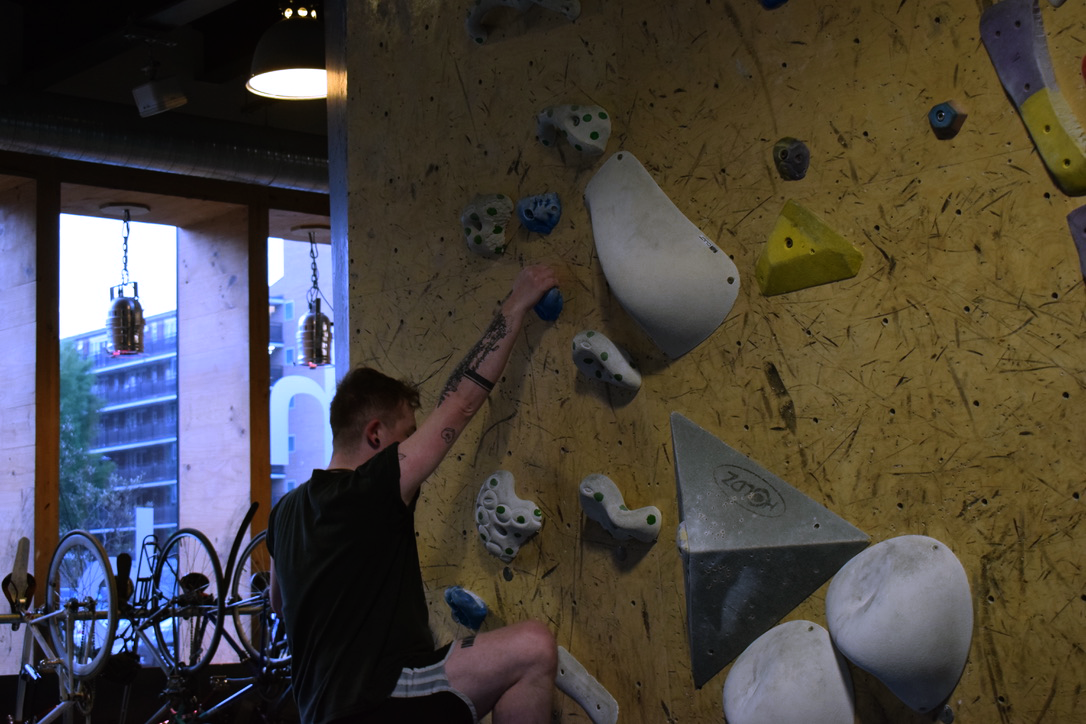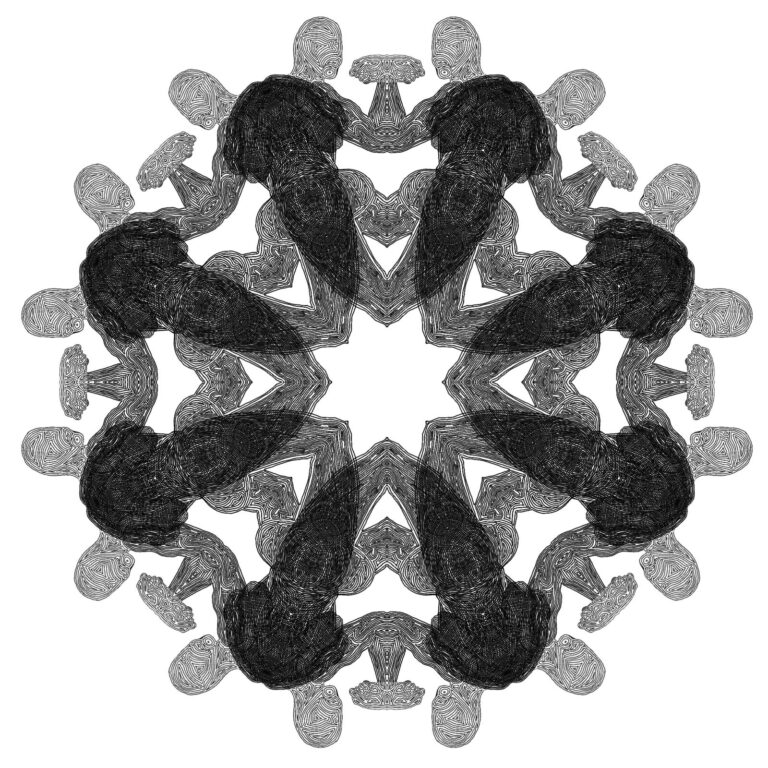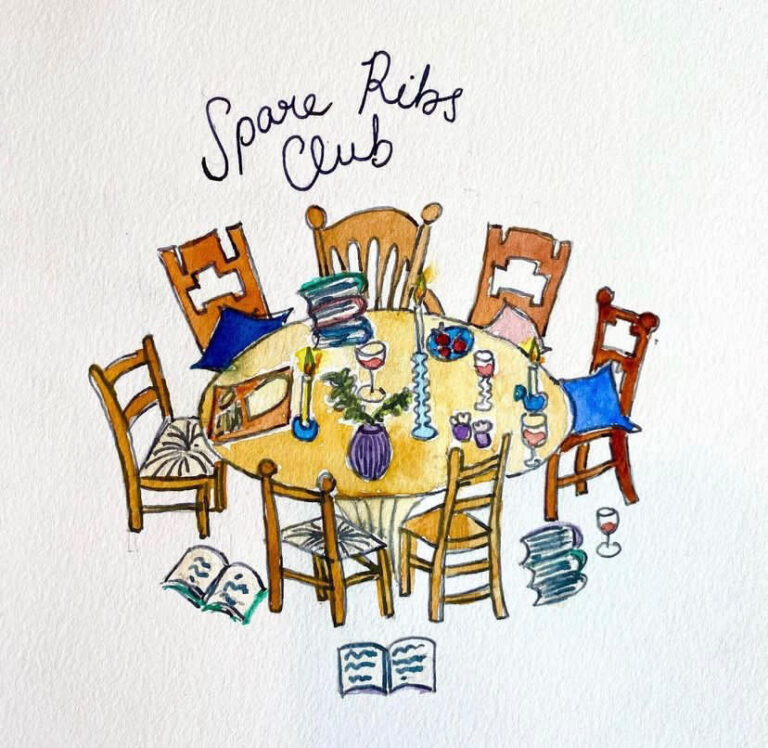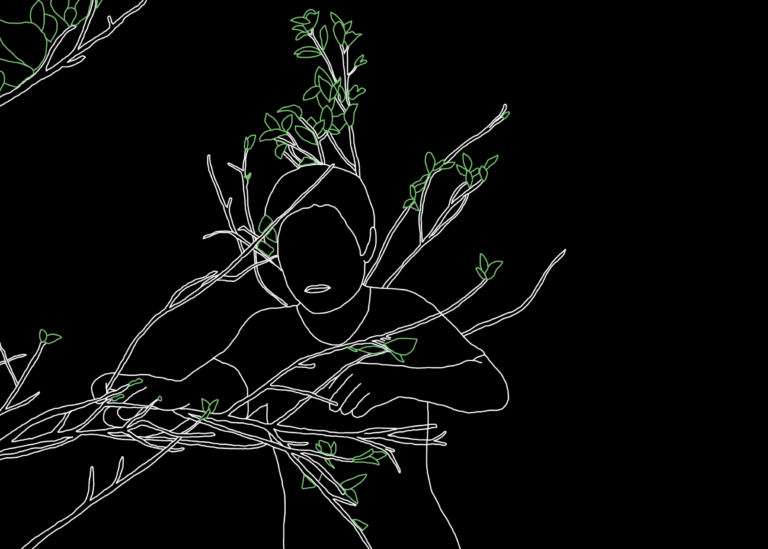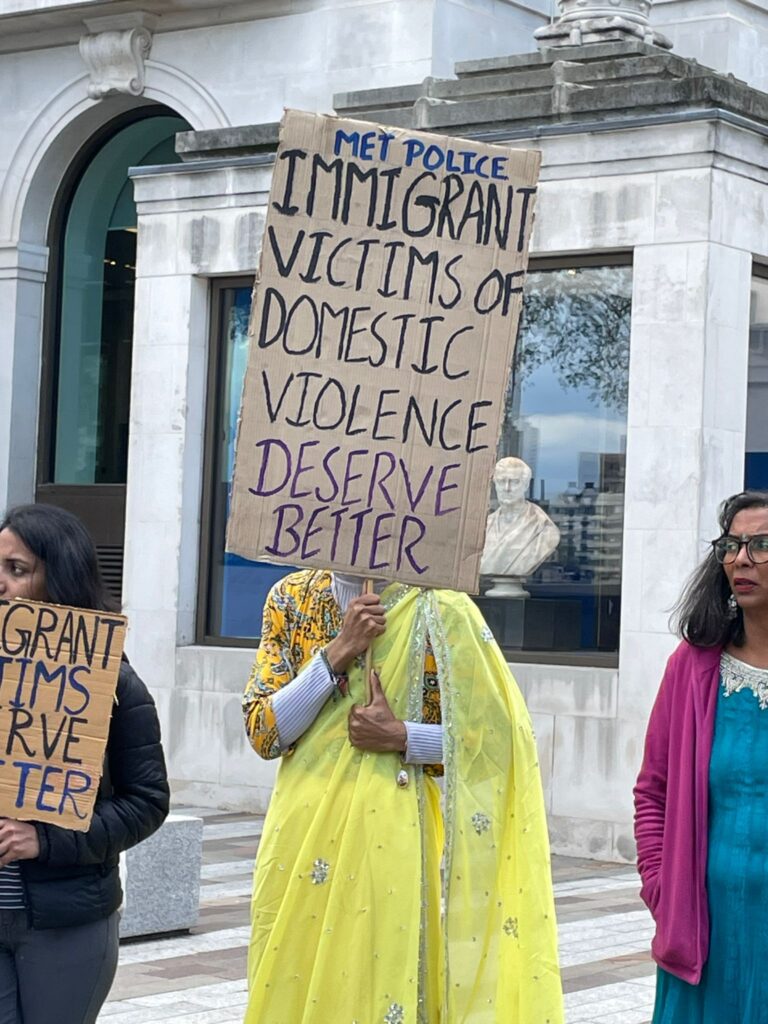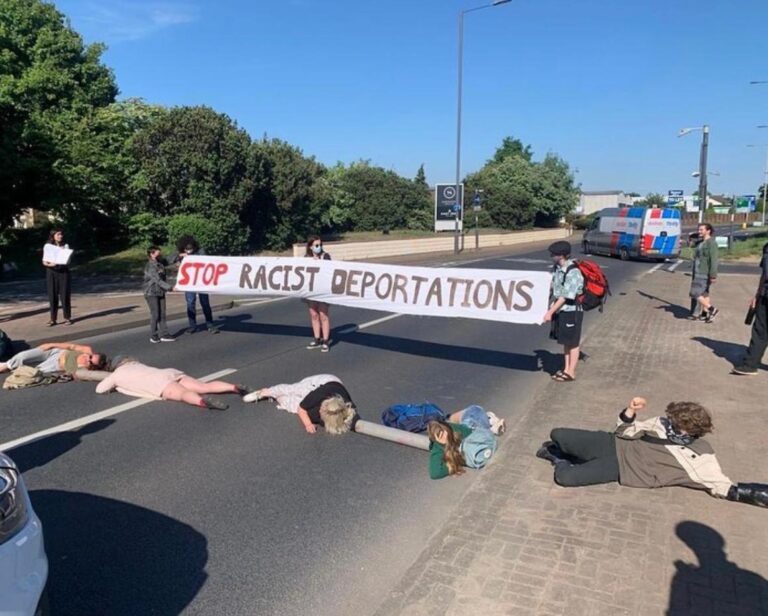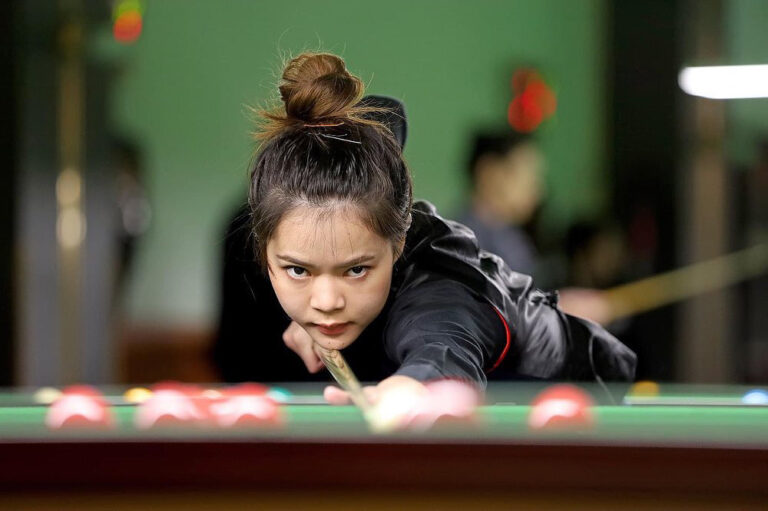Climbing is a safe space where trans athletes feel confident and free (Credit: Neha Dhillon)
“Climbing is the first place that I’ve ever felt comfortable with my body. It just became a really important part of my life and keeps me mentally sane,” says trans athlete Max Branagan.
For years, Branagan, 32, struggled with body dysmorphia and eating disorders; falling in and out of deep depressions as he battled to understand how he fit into his body. Until, six months after he started climbing, he transitioned.
“Now I’m coming to the gym and trying to get a v4 [climbing grade] overhang that I haven’t been able to get and that’s my only focus, that’s just giving me peace within my body.
“I think climbing, especially for trans youths, gives you the opportunity to figure out what your individual bodies can do,” he says.
During Branagan’s school years, the sports played in schools had a detrimental impact on his mental health. Those toxic competitive environments left him with a sense of combativeness where he was only participating to prove a point.
A 2022 survey conducted by the LGBTQ+ charity Mermaids found that more than half of trans youths view their gender identity as a barrier to participation in sports.
Of these youths, 33 per cent were also worried about taking part in sport due to negative media coverage concerning trans people.
But for Branagan, climbing has opened the doors to excel in a sport that depends more on experience, training and technique than it does on one’s physiology.
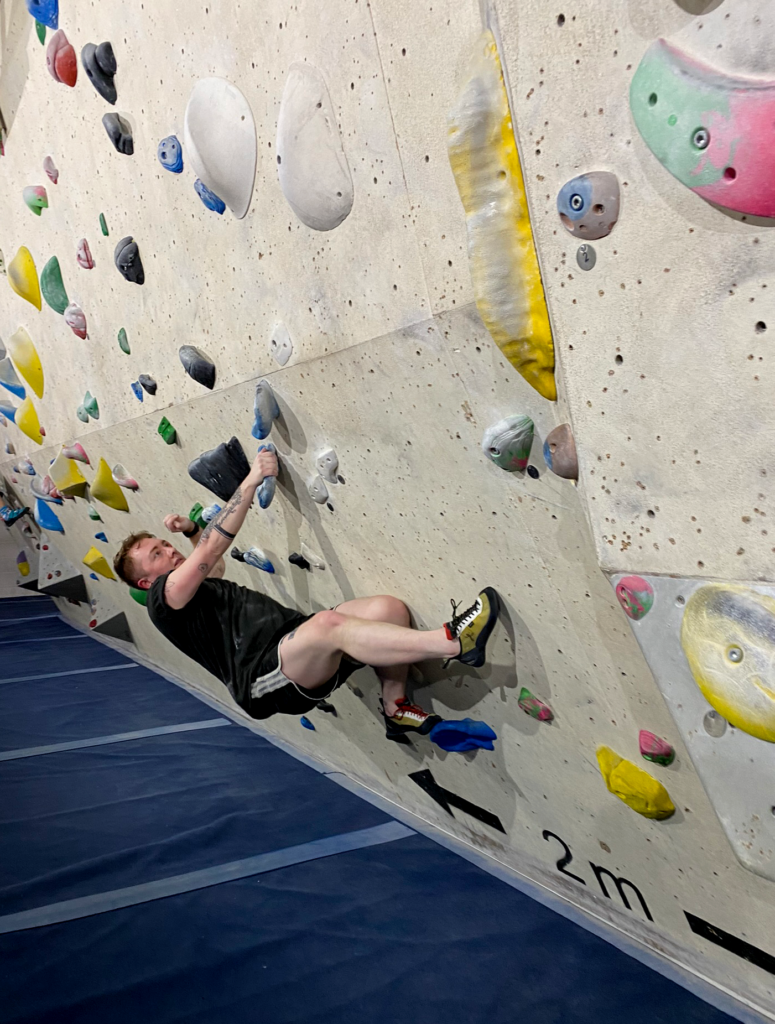
The sport completely reshaped his attitude and it became a safe space where he was able to develop his confidence over time, which along with testosterone shots helped him to fully accept himself.
“I can go climbing with people that look totally different to me physiologically and we can all do the same routes albeit in different ways. It’s had such a positive impact on my body image,” he says.
Branagan also reflected on how the climbing community was supportive of trans people, all the way to a competitive level. He praises the fact that the International Federation of Sport Climbing and GB climbing have stated that trans people, including trans women and girls, will be able to participate in all levels.
But beyond policies at a professional level, grassroots organisations such as Queer Climbers London have been founded by members of the LGBTQ+ community, in an attempt to get more trans people into the sport.
Sophie Claire, the community organiser of Queer Climbers London, notes that climbing is one of few sports that has tried to remove barriers for trans people.
It means that individuals with different physical levels can participate as it is a sport based on problem solving ability, flexibility and balance. It is a sport for everyone.
Claire feels passionately that this sense of inclusivity needs to be fostered at all levels. At a time where the world of sport has become extremely political for trans people, they stress the need to have a space for trans athletes.
“Sport is something that is increasingly exiling trans people. You see a lot of horrible stories about sporting organisations like British swimming, saying that trans kids can’t compete anymore and they can’t participate, which is just completely wrong and unfair.
“We all have a right to move our bodies and feel good in our bodies,” Claire says.
Queer Climbers London currently hosts two socials a month, offering queer people a sporting setting where they can feel safe and are free to be themselves. They also have plans to remove some of the financial barriers trans people face, such as sport appropriate binders (chest straps which don’t constrict blood flow). Indoor climbing centre, Ravenswall, is hosting its own pride month commencing today.
“It’s really important to be able to show trans and gender non-conforming folk that they can participate in sports so that we can encourage other people to do it,” Claire says. “You can’t be what you can’t see.”
Claire emphasises the importance of these amateur level changes to the sport, saying that they help to make trans youths feel comfortable and part of a sports community.
You may also like: Being a leader in the face of an ACL injury epidemic
